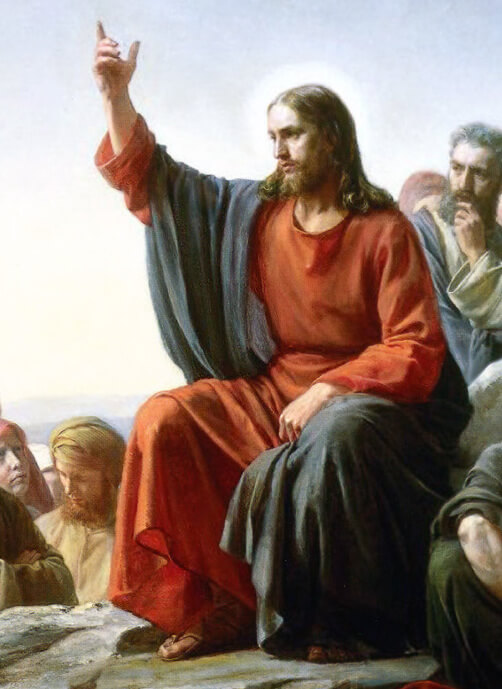
1st Sunday Of Lent – Year B
Fr. Mark Gatto
Date Preached: February 21, 2021
What did Jesus say in his very first homily? We do not know for sure, but at the beginning of Mark’s Gospel we see the first words that he has Jesus preaching. “Repent.” This means to change, to return to the truth, return to God, to turn back to the way of God, to see in a new way. Certainly, Lent is a time of repentance, we are striving to return to the heart of God, turn back to the way that is our true self as a child of God.
But, then Jesus goes on to say, “Believe.” What is it that we are supposed to believe? Jesus says, “Repent and believe in the good news.” Believe in the good news. What God reveals in Jesus is good news, what we as Christians are to preach is good news.
God does not desire to destroy humanity, does not have a plan to wipe out humanity. God is not focused on punishment. In our first reading we see the story of the Great Flood and how Noah was saved. Here we see the story of the first covenant established by God with all humanity.
Symbolically seen in the bow in the sky. It is God’s covenant with the whole earth that promises not to destroy everything as in the Flood.
God is a God of salvation, of reconciliation, of healing, of new life. In Jesus, this is made even clearer. God makes a new covenant in Jesus. An eternal covenant in which God promises to remain with us forever, never to abandon us, to offer us forgiveness and salvation.
The heart of the Christian message, the centre of the Gospel is Good News. During this pandemic there have been so many conspiracy theories being promoted on-line and elsewhere. Many so called prophecies by various figures, including Christian figures. Most of them are centred on some sort of great apocalyptic moment, some dramatic display of power that often seems to be about punishing people and saving a select few.
When you listen to preachers or other figures, ask yourself, is this good news? When you are reading on-line sites with predictions or other visions about our present situation. Ask yourself, is this a message that gives me hope, that encourages me, that helps me to turn around and face the path of God? If some conspiracy theory or some prediction or some so-called prophecy seems more like bad news than good news, then you should question it right away.
This also should influence how we see the sacraments. Many are concerned because they could not get to church for Mass during this past year, others are too nervous to come out due to Covid. Some feel worried about this or feel guilty about this. But, the sacraments are left by Jesus for the church, not as some proof of our holiness, or some test to be passed, or something we do to earn our salvation. The sacraments are meant to be instruments that aid us on our way to salvation.
For instance, if a mother with a new born child cannot come to church because she needs to stay home to care for her child, that is truly the will of God. Also, if you miss Mass during a pandemic to care for your life or out of concern for others, then this is in the spirit of God who desires our life and salvation, not our death.
The first and foundational preaching of Jesus was “repent and believe in the good news.” Lent is a time to repent, to turn around, to see in a new way. What we are called to believe is good news. It is a message of a God whose will is for our salvation, our healing, our reconciliation, our peace. It is not a message of condemnation, rejection or punishment.
Be suspicious of any person whose teaching or preaching seems to be more bad news than good news. Preach good news by your life, by your words, and by the way you treat each person.
